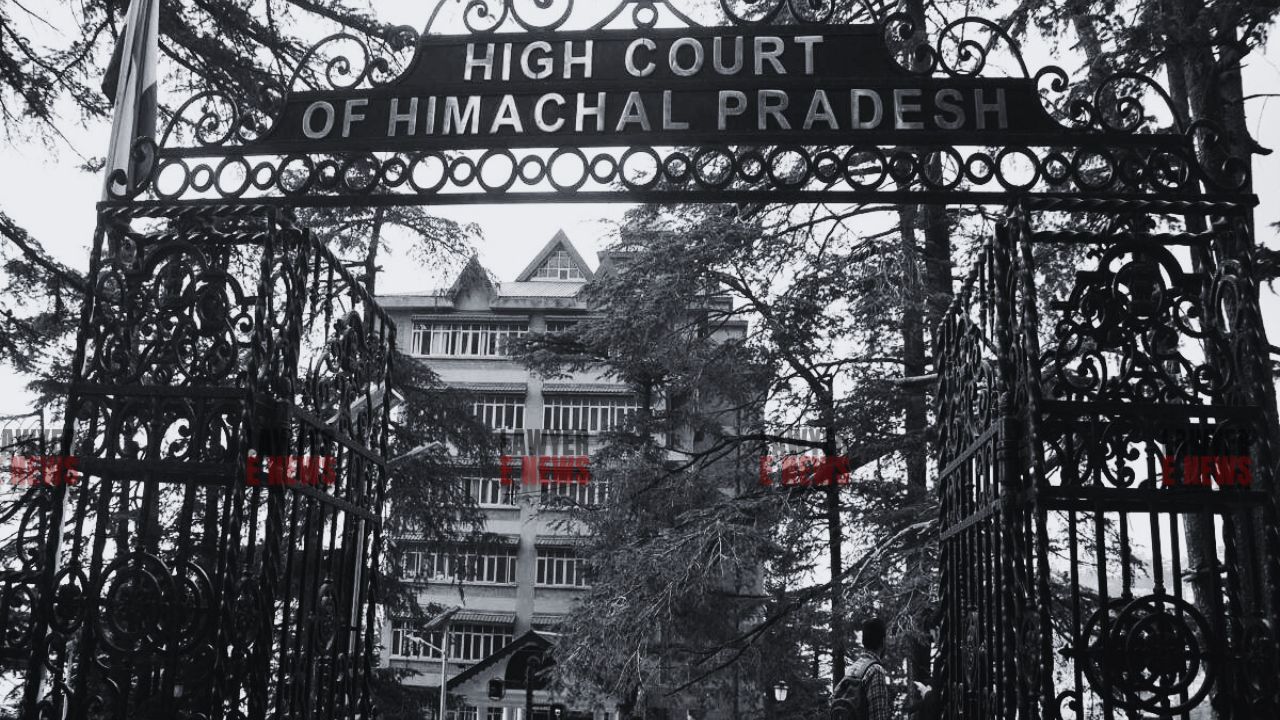-
by Admin
15 February 2026 5:35 AM



High Court of Himachal Pradesh, Shimla, in Layak Ram v. Jimoti Devi, dismissed a petition under Article 227 of the Constitution challenging the appellate court’s order to enhance maintenance from ₹1,500 to ₹10,000 per month. The case revolved around the maintenance obligations under Section 12 of the Protection of Women from Domestic Violence Act, 2005, with the petitioner claiming that the enhanced amount was excessive given his advanced age of 83 years. The court, however, upheld the appellate court's decision, citing the petitioner’s substantial agricultural and other income sources.
The dispute began when Jimoti Devi, the respondent, filed for maintenance under Section 12 of the Protection of Women from Domestic Violence Act, 2005. The Trial Court initially awarded ₹1,500 per month as maintenance along with ₹800 as rent. Dissatisfied, the respondent appealed to the first Appellate Court, which raised the maintenance to ₹10,000 per month, based on the petitioner’s financial disclosures.
Layak Ram, the petitioner, challenged this increase before the Himachal Pradesh High Court, arguing that the higher amount was disproportionate, especially considering his age (83 years). The core issue was whether the enhanced maintenance was reasonable, given the petitioner’s income and circumstances.
The primary legal issue was whether the quantum of maintenance set by the first Appellate Court was excessive. The case involved a balancing act between two legal principles: the petitioner's age and capacity to pay versus his legal and moral duty to support his wife. The court also assessed whether the income figures presented during trial justified the substantial increase in maintenance.
Justice Tarlok Singh Chauhan observed that the first Appellate Court based its decision on substantial evidence regarding the petitioner’s financial standing. The petitioner admitted to owning 30-32 bighas of agricultural land, yielding a monthly income between ₹40,000 and ₹50,000. Additionally, he received ₹6,000 under the ‘Kisan Nidhi Yojana’ and ₹1,700 as an old-age pension. The court noted that the petitioner’s witnesses, including his son, corroborated these earnings.
The High Court, after reviewing the evidence, concluded that the appellate court’s order to enhance maintenance to ₹10,000 per month was not excessive or unreasonable. The court emphasized that the petitioner had sufficient income to meet this obligation. As stated in the judgment:
"It is not only the moral but a legal obligation of the petitioner to maintain the respondent, who is none else than his legally wedded wife."
The petitioner’s argument that his advanced age should result in reduced maintenance was dismissed. The court reasoned that the petitioner's significant agricultural income and additional earnings justified the increase, and the respondent was entitled to a dignified standard of living.
Ultimately, the court dismissed the petition, affirming that the maintenance amount was appropriate in light of the petitioner’s financial capability.
The Himachal Pradesh High Court upheld the appellate court's decision to increase the maintenance payable to ₹10,000 per month, considering the petitioner’s substantial income. The court reiterated that both legal and moral obligations require a husband to support his spouse, and the petitioner’s age did not excuse him from this duty, especially given his financial standing.
Date of Decision: September 20, 2024
Layak Ram v. Jimoti Devi
